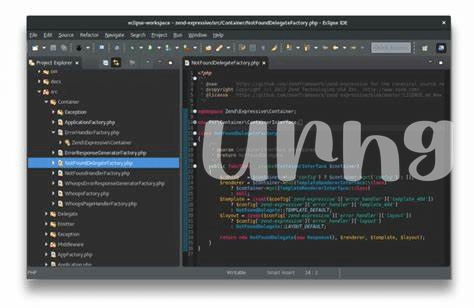- Setting the Foundation: Understanding App Development Basics 🛠
- Choosing the Right Tools for Efficiency and Success 🔧
- Harnessing the Power of User-centered Design 🎨
- Enhancing Functionality with Innovative Features 🚀
- Implementing Robust Testing and Quality Assurance 🛡
- Continuous Learning and Improvement for App Excellence 📚
Table of Contents
ToggleSetting the Foundation: Understanding App Development Basics 🛠
Setting the Foundation
Understanding App Development Basics
Embarking on the journey of app development requires a solid understanding of the fundamental principles that govern this dynamic field. Just like a skilled architect meticulously plans a building before construction begins, app developers must grasp the essentials of coding languages, frameworks, and platforms. By mastering the fundamentals, developers lay a sturdy groundwork for the intricate designs and innovative functionalities that will define their creations.
| Concepts | Description |
|————————-|———————————————————————————–|
| Coding Languages | Java, Swift, Kotlin, JavaScript are essential for app development. |
| Frameworks | React Native, Flutter provide tools to streamline app development processes. |
| Platforms | iOS, Android, Web vary in requirements and capabilities for app deployment. |
| Version Control | Git, SVN ensure efficient collaboration and tracking of changes in code. |
Understanding the basics is akin to learning the alphabet before composing a literary masterpiece; it forms the cornerstone upon which the edifice of app development stands tall.
Choosing the Right Tools for Efficiency and Success 🔧
Choosing the right tools is crucial for achieving efficiency and success in app development. By carefully selecting tools that align with your project requirements and workflow, you can streamline processes and enhance productivity. Whether it’s IDEs, frameworks, version control systems, or testing suites, each tool plays a key role in shaping the development journey. Understanding the strengths and weaknesses of different tools and how they integrate within your development ecosystem is essential for making informed decisions that drive project success.
When considering tools for app development, it’s important to evaluate factors such as scalability, compatibility, and ease of integration. Investing time upfront to research and experiment with different tools can save you from future headaches and delays. Additionally, keeping abreast of emerging tools and technologies can give you a competitive edge in the fast-paced world of app development. By staying adaptable and open to exploring new tools, you can continuously optimize your workflow and elevate your development capabilities.
Harnessing the Power of User-centered Design 🎨
User-centered design is the key to creating apps that truly resonate with users, putting their needs and preferences at the forefront of the development process. By conducting thorough research, gathering feedback, and incorporating intuitive interfaces, developers can design apps that not only look visually appealing but also provide a seamless and user-friendly experience. Understanding the target audience, their behaviors, and motivations is essential in crafting designs that engage and excite users. By embracing the principles of user-centered design, app developers can create products that not only meet users’ needs but exceed their expectations, leading to increased satisfaction and success in the competitive app market.
Enhancing Functionality with Innovative Features 🚀
Point 4: Enhancing Functionality with Innovative Features 🚀
In the fast-paced world of app development, staying ahead often means incorporating innovative features that not only enhance functionality but also captivate users. By infusing creativity and cutting-edge technology, developers can elevate their apps to new heights, offering unique experiences that set them apart from the competition. Whether it’s integrating augmented reality for immersive interactions or leveraging AI algorithms for personalized recommendations, the possibilities are vast. Embracing innovation allows developers to push boundaries, explore new frontiers, and ultimately deliver solutions that resonate with users on a deeper level, fostering long-term engagement and loyalty. As technology continues to evolve, the potential for groundbreaking features is limitless, providing endless opportunities for developers to showcase their skills and deliver truly exceptional app experiences that leave a lasting impression.
Link: What is the best free private browser and downloader app for Android in 2024?
Implementing Robust Testing and Quality Assurance 🛡
Implementing robust testing and quality assurance is a crucial step in ensuring the success and reliability of an app. By conducting thorough testing processes, developers can identify and rectify any potential issues or bugs before the app is launched to the public. Quality assurance measures help in maintaining high standards of usability, functionality, and performance, ultimately leading to a positive user experience. Various testing techniques, such as unit testing, integration testing, and acceptance testing, are employed to assess different aspects of the app’s functionality. Automated testing tools can also significantly streamline the testing process, improving efficiency and accuracy. Continuous monitoring and evaluation of the app post-launch are essential to address any unforeseen issues that may arise and to ensure ongoing quality and performance. By prioritizing robust testing and quality assurance practices, app developers can enhance the overall quality of their products and build trust with users.
| Testing Stage | Objective |
|———————|——————————————————–|
| Unit Testing | Verify individual units of source code |
| Integration Testing | Ensure different units work together seamlessly |
Continuous Learning and Improvement for App Excellence 📚
Continuous learning and improvement are fundamental aspects of achieving app excellence. In the dynamic landscape of app development, staying updated with the latest trends, technologies, and best practices is paramount. Embracing a mindset of perpetual growth and evolution not only enhances the quality of your current projects but also equips you with the skills needed to tackle future challenges. By actively seeking out opportunities to expand your knowledge base through courses, workshops, and networking events, you can bolster your expertise and stay ahead in the competitive app development market. Additionally, soliciting feedback from users and peers can provide valuable insights for refining your app and ensuring it meets the evolving needs of its target audience.




